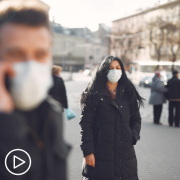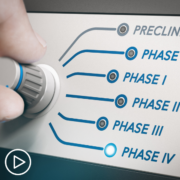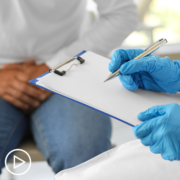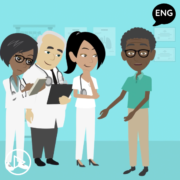What Steps Can Breast Cancer Patients Take To Be More Proactive?
What Steps Can Breast Cancer Patients Take To Be More Proactive? from Patient Empowerment Network on Vimeo.
What steps can breast cancer patients take to be more proactive in their care? When is it appropriate to voice concerns? Dr. Regina Hampton offers advice for patients and loved ones how to work towards achieving optimal care.
See More From the Best Care No Matter Where You Live Program
Related Programs:
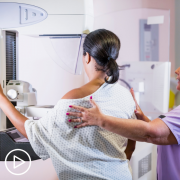
|

|

How Can Breast Cancer Patients Connect to Patient-Centered Care? |
Transcript:
Dr. Nicole Rochester:
Are there some other practices or key steps that patients can take so that they have a proactive approach in their healthcare and that they can feel more confident in voicing some of these concerns when they’re communicating with their healthcare team?
Dr. Regina Hampton:
I think it’s important to have a support person. And that could be a family member, it could be a neighbor, it could be your best friend. Doesn’t always have to be family, sometimes it’s better to have somebody who’s not family, because sometimes a family, they get you know they get emotionally involved and we get that, but I think it’s important to have another pair of ears because especially when you get a new diagnosis, you’re not going to hear everything, and I know patients. The second somebody says, cancer, breast cancer, pancreatic cancer, they just shut down. That’s it. They’re not going to hear. You could tell them, I have a million dollars for you, they’re not hearing you, they’re not going to follow the directions to go get that million dollars because they just have shut down, and even at that second visit, they still are just sort of…I call it the whomp, whomp, whomp. They see my mouth moving, but they’re not really hearing the words, but if they have another support person who can be there to record the conversation, who can take notes, even in the era of telemedicine, somebody can dial in to listen. I’ve been doing family meetings and people have been on the West Coast, or somebody couldn’t get off the work, but there was somebody there who could hear that information, I think that’s so important, and especially as we get more seasoned, Mom and Dad, sometimes they are a little in denial on the information that they can take in, but so important to be there in some form, and with telemedicine, it makes it quite easy to get another pair of ears in the room.
Absolutely, you are speaking my language, Dr. Hampton, I’m telling you, because the other thing that I always recommend is for patients to have a buddy, and like you said, that may be a family member, it may be a best friend, it may be someone in your church, but I think the studies say that something somewhere around 30 percent to 40 percent is all that we retain when we go to the doctor’s office, and so like you said, especially if you’re getting bad news, a lot of that information goes out of your brain, and so it’s so important to have a back-up person and that person can sit and take notes, and sometimes they can even remind you of some of the questions that you may have had or some of your concerns, I really, really appreciate you bringing that up.
I think it’s also important to take a deep breath, I find people get a cancer diagnosis and they want to just rush through everything. Well, in most cases, cancer doesn’t spread that fast, but there are a lot of decisions to make, and you really should take that time to hear all the options, may need to get a second or third opinion so that you really can make good decisions, you can’t make good decisions if you’re fearful, just can’t do it.



